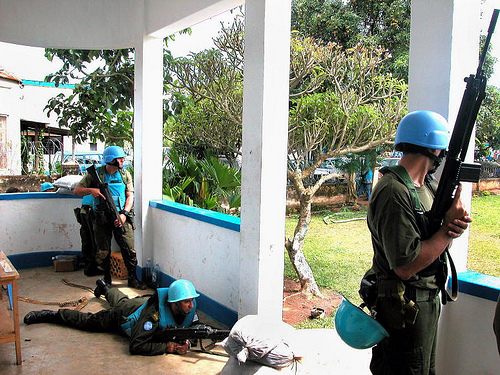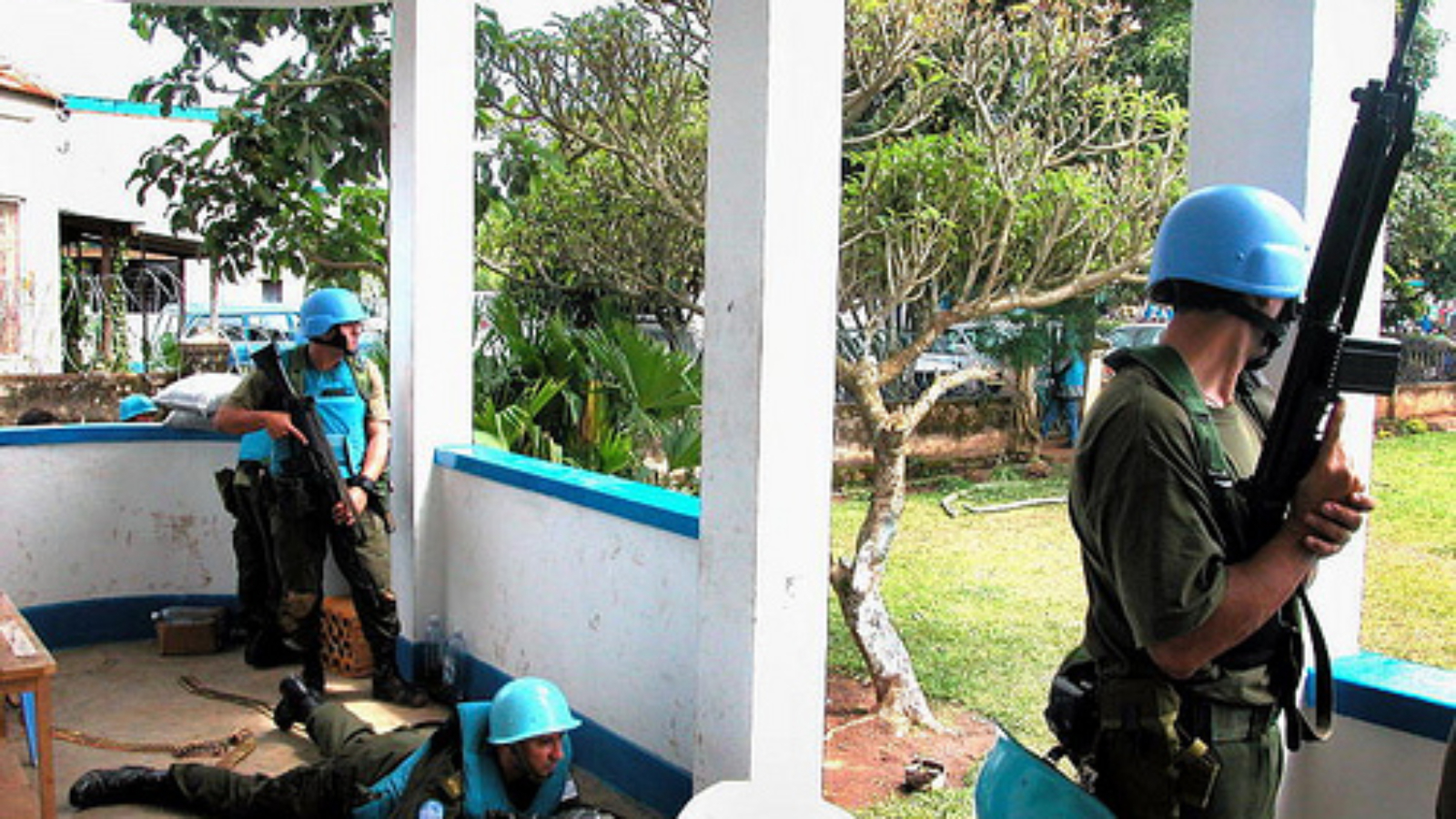 Human rights advocate Floribert Chebeya was killed in the Democratic Republic of Congo Wednesday, and activist groups are accusing the police. The groups are claiming that John Numbi, inspector general of the National Police, was responsible for ordering the attack. The BBC reported that a senior UN investigator believes the circumstances “strongly suggested official responsibility.”
Human rights advocate Floribert Chebeya was killed in the Democratic Republic of Congo Wednesday, and activist groups are accusing the police. The groups are claiming that John Numbi, inspector general of the National Police, was responsible for ordering the attack. The BBC reported that a senior UN investigator believes the circumstances “strongly suggested official responsibility.”
According to Human Rights Watch, Chebeya’s family at first were not allowed to see the body, though on Thursday they were able to see his face while his body remained covered with a bed sheet they were ordered not to remove. Chebeya’s driver, 50-year-old Fidele Bazana is still missing, though he is also believed to have been murdered.
The 47-year-old Chebeya had been intending to meet with Numbi at the police headquarters in Kinshasa, but sent a text message to his wife just before 8 p.m. Tuesday indicating that he had been unable to meet the inspector general. Chebeya was found dead in the back seat of his car Wednesday.
Chebeya was the head of the human rights group Voice of the Voiceless. Members from both the UN and Voice of the Voiceless said Chebeya had received many death threats over the past 20 years. –Seth Walder
International Gay and Lesbian Human Rights Commission (IGLHRC), a New York-based NGO, had its application for “consultative status” at the UN Economic and Social Council effectively denied. Despite support from the American and British delegations, among others, the 19-member UN NGO committee failed to vote on the organization. According to the British delegation, the decision to not to vote on the group’s application was proposed by Egypt.
Cary Alan Johnson, head of IGLHRC, said it was a “clear case of discrimination against an organization because it defends the human rights of LGBT (lesbian, gay, bi- and transsexual) people around the world.”
Reuters quoted a Western diplomat as saying IGLHRC “clearly fulfills all the criteria for UN accreditation.” The United States originally proposed to approve the group’s application. IGLHRC has been applying for consultative status for three years. Other members on the committee include Sudan, Israel, Qatar, China, Turkey and India. –Seth Walder
 Farai Maguwu, a diamond researcher who turned himself in to Zimbabwe police on Thursday, claims that the charges against him are a “set up” aimed at stopping his investigations into human rights abuses at the Marange diamond fields. Maguwu was accused of providing false information during a May 25 meeting with Abbey Chikane, an official from international watchdog group Kimberley Process (KP) who was examining claims of illegal diamond trades.
Farai Maguwu, a diamond researcher who turned himself in to Zimbabwe police on Thursday, claims that the charges against him are a “set up” aimed at stopping his investigations into human rights abuses at the Marange diamond fields. Maguwu was accused of providing false information during a May 25 meeting with Abbey Chikane, an official from international watchdog group Kimberley Process (KP) who was examining claims of illegal diamond trades.
Maguwu, who is the leader of the Center for Research and Development in Mutare, claimed that he had spoken with Chikane about persistent human rights violations at the diamond fields and that he was told their discussion would be “confidential.” Two days after the meeting, armed men invaded Maguwu’s home, but he escaped through a window and remained in hiding until Thursday. He claims that his relatives have been beaten and harassed since the raid. His brother has already been questioned by state officials, and his cousin was arrested for obstruction of justice.
Maguwu claims that the meeting with Chikane was a set-up so that KP could find a reason to prosecute him. In a radio interview conducted prior to turning himself in, Maguwu asserted that “there must be something going on behind the scenes between Abbey Chikane and the … officials who are plundering Marange diamonds.” He also called the charges against him “nefarious allegations” that “are simply meant to start a long legal battle that will keep me in the country and that will also paralyze the operations of our organization.” In a statement on Thursday, Maguwu’s lawyer, Tinoziva Bere, stated, “This is a message to civil society that there’s a price for fighting for your rights—no one is safe.”
The charges against Maguwu come less than a week after Zimbabwe president Robert Mugabe threatened to withdraw from the KP, claiming that the organization’s restrictions and certification requirements have unfairly limited the nation’s diamond exports. –Peter Bozzo
